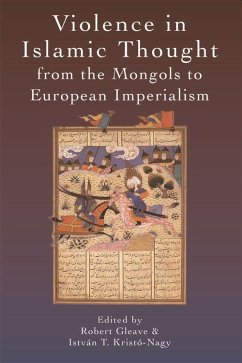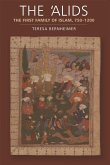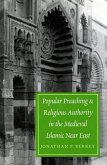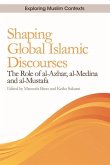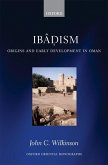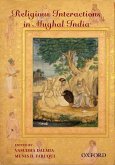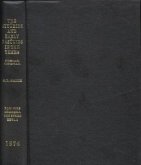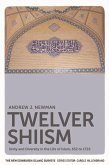'Wide-ranging and authoritative.' Hugh Kennedy Examines the development of Muslim theological, legal, literary and cultural discussions about violence and its legitimation The violent conquest of the eastern part of the lands under Muslim rule by the Mongols marked a new period in the history of Islamic civilisation and in attitudes towards violence. This volume examines the various intellectual and cultural reactions of Muslim thinkers to these events, both within and beyond the territories subjected to Mongol control. Each chapter examines how violent acts were assessed by Muslim intellectuals, analysing both changes and continuity in Islamic thought over time. Each chapter is structured around a case study in which violent acts are justified or condemned, revealing the variety of attitudes to violence in the medieval period. They are framed by a detailed introduction, focusing on theoretical perspectives on violence and religion and their application - or otherwise - to medieval Islam. Key Features . Examines the portrayal of violence in a variety of Muslim intellectual contexts (historical, philosophical, theological, legal, literary, artistic) . Employs a broad understanding of violence - from warfare between Muslims (and between Muslims and others) to individual acts of violence . Enables a better-informed debate about the nature of violence in Islamic thought, and how the positions developed in early Islam were both used and abandoned by later writers . Positions these classical conceptions of violence and its justification in Islamic thought in the broader methodological debate over violence and its relationship with religious thought Robert Gleave is Professor of Arabic Studies at the University of Exeter. He is author of Islam and Literalism: Literal Meaning and Interpretation in Islamic Legal Theory (Edinburgh University Press, 2012). István T. Kristó-Nagy is Lecturer in Arabic and Islamic Studies at the University of Exeter. He is the author of La pensée d'Ibn al-Muqaffa¿. Un « agent double » dans le monde persan et arabe (2013) and co-editor, with Robert Gleave, of Violence in Islamic Thought from the Qur'an to the Mongols (Edinburgh University Press, 2015). Cover image: Ali killing an enemy with dhul-faqar sword. Khaveranname, Iran, 882AH, Teheran Cover design: [EUP logo] edinburghuniversitypress.com ISBN 978-1-4744-1300-8 Barcode
Hinweis: Dieser Artikel kann nur an eine deutsche Lieferadresse ausgeliefert werden.
Hinweis: Dieser Artikel kann nur an eine deutsche Lieferadresse ausgeliefert werden.

